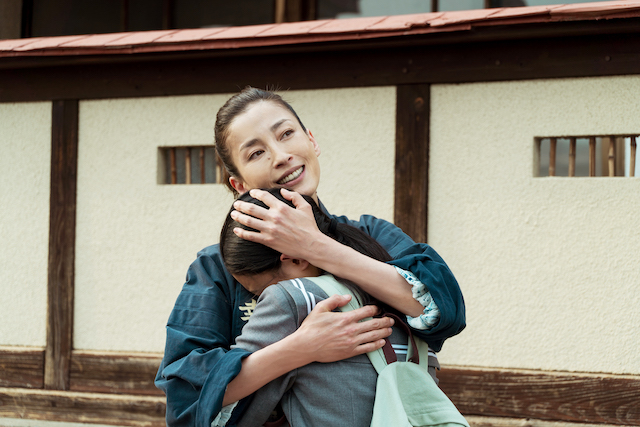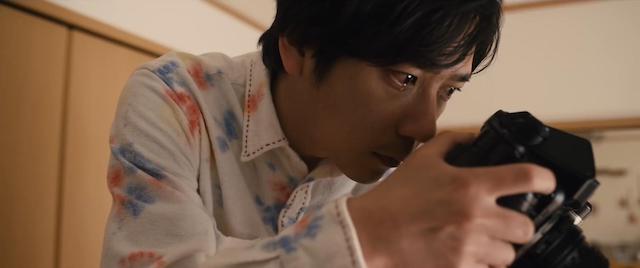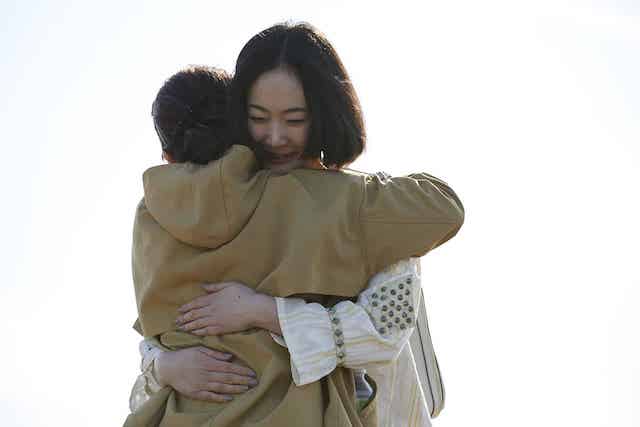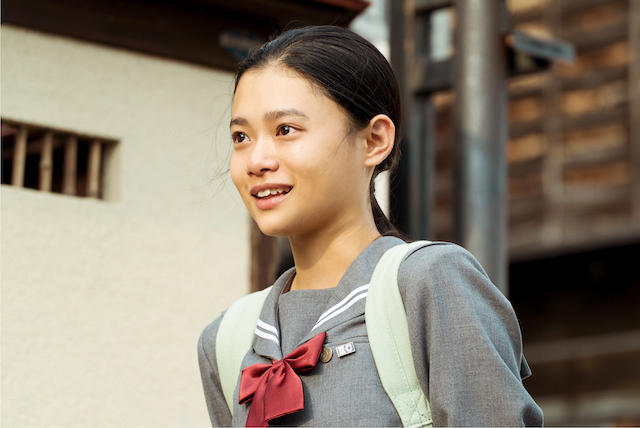
The latest ACA Cinema Project Series, titled ‘Family Portrait: Japanese Family in Flux,’ concluded last Saturday at the Japan Society. The curated selection featured premieres and revivals, showcasing masterpieces from genre-defining filmmakers like Yasujiro Ozu to Hirokazu Kore-eda. The program’s finale was dedicated to Ryota Nakano, who has risen to prominence with his invigorating and heartwarming portrayals of Japanese families facing adversity.

Exclusive Interview with Director Ryouta Nakano
Q : From A Long Goodbye to The Asadas, your films feature families that consist of members of different ages. What’s your creative process to create your characters from a broad age range each of which is so lively and in-depth?
Ryota Nakano : What I always keep in mind is creating characters that bring out the best in an actor’s natural qualities. Humans are complex beings, and the way we comprehend and express simple emotions like rage and sorrow varies from person to person. This individual variance makes each of us unique and defines who we are.
When actors fully exhibit their true selves through performing their onscreen personas, it adds authenticity and depth to the characters. I don’t want my actors to play just “character A”. I want each of my actor, as well as my characters, to be a unique individual.
Q : Did you encourage your actors to improvise to derive their innate uniqueness of them?
Ryota Nakano : Some of them improvised but not always the case. The acting style varies depending on the individual. Some prefer adhering to the script, while others shine when they go off-script, and this preference is also part of individual uniqueness. It’s about expressing the emotions and circumstances of their characters in a way that feels genuine to the actors themselves in real life.
For instance, Kazunari Ninomiya, who plays Masashi in The Asadas, didn’t stick strictly to the scripted lines. He grasped the essence of the dialogue and adjusted with subtle nuances, perfectly capturing the character of Masashi, just as I envisioned. An even more interesting case is with Joe Odagiri, who brought Kazuhiro to life in Her Love Boils Bathwater. His delivery changed on each rehearsal. His unpredictability seamlessly fell into place for his role, bringing forth a very plausible, natural embodiment of Kazuhiro.
Q : I really enjoyed their sort of “endearing slackers” characters in both films. They seemed the perfect matches for those roles. Did you specifically write the characters for them?
Ryota Nakano : Part of me did. I believe that a character won’t come to life if it’s played by someone whose personality is too far from it. Actors and characters have some sort of similar qualities and personalities. Masashi’s natural charisma that effortlessly entices people around him is something Ninomiya himself possesses. It circles back to my approach, that I mentioned earlier, of creating characters who can embody the organic, innate charms of the actors.

Q : Since your films have a lot of great child roles, can you tell me a bit about directing child actors? Was there anything particular that you kept in your mind when working with them on your set?
Ryota Nakano : There are two types of child actors: those who excel at taking directions and acting, and those who are natural by just being themselves. For actors younger than the third or fourth grade, I prefer to capture who they really are in real life rather than giving them detailed directions. As they reach certain grades, I start treating them more like actors, acknowledging their growing sense of professionalism and independence.
A great example of this is seen in two child actors from Her Love Boils Bathwater, Aoi Ito and Haruka. Ito is a remarkable talent who understood the complex character of Ayuko and delivered an impeccable portrayal of her just as I pictured. Haruka, playing Mayu, the daughter of the detective, was the polar opposite. She was exactly like her role on set: cheerful and free-spirited. I basically filmed her being her true self, and it turned out to be the best version of Mayu in the film.
Q : While watching your films, I’ve noticed your distinctive depictions of mothers and fathers. Is this intentional on your part, and if so, does it draw from your upbringing?
Ryota Nakano : My own upbringing may have influenced how I portray genders. Due to my father’s prolonged absence from my life, I’ve developed an image of men as undependable and adrift. Conversely, my perception of women is one of mental toughness and unwavering dedication, shaped by my mother who single-handedly raised me. Although I didn’t explicitly project my mother into the mother characters in my films, they embody the characteristics I admire in women and mothers.
Q : Has the image of fatherhood changed since you got married and became a father?
Ryota Nakano : I haven’t shot a film since having a baby, so I’m not entirely sure yet. Also, parental self-awareness doesn’t immediately come after a baby is born. It’s been taking me more than two years to fully embrace the role of being a father. I look forward to seeing how my concept of fatherhood will evolve and to portraying a family through a different lens.
Q : You mentioned that the production of Her Love Boils Bathwater was completed in just 17 days. What was the key to managing a shoot on such a tight timeline?
Ryota Nakano : I attribute this achievement to my dedicated production team, who were at the top of their game throughout the filming process. For this particular film, the staff exhibited a genuine fondness for the project. Their emotional investment in the plot and characters fostered a shared sense of purpose for completing this special film in collaboration.
When the staff genuinely connects with the film they’re working on, it enhances their concentration and productivity. This is also why I prefer to write my own films. It’s a source of my motivations to craft a better, more interesting story when I see how much my crew is invested in my script.

Q : Is that something you care about on your other set?
Ryota Nakano : Yes, it is. Motivating the staff is one of my key priorities on set. Time efficiency is a means to maintain the high spirits of the entire production team. Some directors solely focus on the performance of actors and don’t mind pushing the schedule to achieve it. However, to me, a successful production can only be obtained through the great collaboration of the cast and crew.
Q : You once mentioned that you give great consideration to relevance when choosing the theme of a movie. If you were to create a new film now, what would the theme be?
Ryota Nakano : Considering the tumultuous global climate marked by wars and natural disasters, I am inspired to create a film that emphasizes the preciousness of life. While I may not directly address a specific war in my film, I want to convey this fundamental message.
Check out more of Mako’s Articles.

